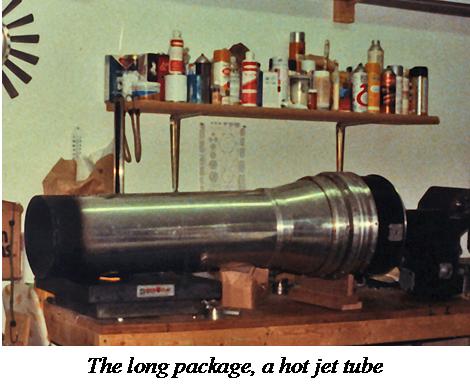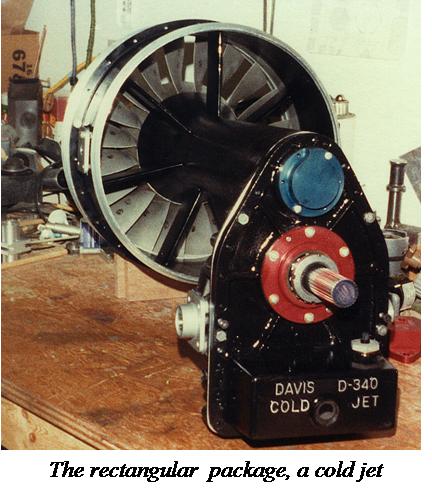By Gilbert E. Davis
Avaiator Test Pilot
Designer Idaho
Flying Wing
Test Pilot
Mormon
All of the previous chapters of this book were written by Gilbert Davis. Only minor spelling changes have been made and pictures have been added.
I
am Leon Goodman. I have only known Gilbert for about 8 months.
Everything I know about him, I learned from his writings and personal
visits.
I am compelled to explain how I came to know Gilbert because it is key
to know how Gilbert is related to me.
It started on a day in June, 2006. I was camping with my family in Idaho at a place called Seven Devils campground, which is near Heaven’s Gate at 8,000 foot altitude. One night I had a vivid dream which seemed to be very important. I had a dream like this before and it signified a very important event in my life. The dream was very detailed and full of feelings and emotion. I knew that this was a message of great importance and I must remember it for future reference. I knew this was not just a dream but a vision from a heavenly source.
I saw that I was in my empty house and that people from church were there, speaking in serious tones. One of the men who I recognized as someone who had befriended me when I first arrived in Boise came towards me and said, “Come, look and see what we have done.”
He then opened the door to my garage and showed me the scene. All the storage shelves were empty, but on the workbench where my tools were normally stored there were a few packages, very neatly wrapped in brown paper and tied with sturdy twine. They were not packing boxes that a mover might use of uniform size and shape but were peculiar dimensions. The package on the left was about four feet long and a little less than a foot square. Next to it was a larger box about two and a half feet square and there were some smaller boxes for a total of less than six all together. I was puzzled. Where was all my stuff? Why was I packed up? What was in those strangely shaped packages? I wanted to talk to my wife, but I knew somehow that was not possible. I felt frail and helpless and very depressed. The depression was overwhelming.
And then I was turned to the group of ladies present and one of the ladies, a short attractive woman I recognized as a very compassionate person came forward with a great big smile upon her face and bent down with her arms spread wide and gave me a hug. Warmth filled my soul and I knew that I was loved.
Then a great voice said, “You exist now as an object of compassion for others.”
I knew it was the truth, but I had many questions in my head when I awoke. I told my wife, Eva, that I had one of those “dreams”. “I don’t know if I can talk about it now.” We did not talk about anything but the most important items as we struck camp and left for our next destination on the Salmon River, near Riggins, Idaho. I knew I had witnessed an end life experience, but I was more disturbed by Eva’s absence in my dream. At the time of the dream in 2006, I was 70 years old and Eva was only 50. I had always assumed that Eva would outlive me and so I was deeply troubled. What was the real meaning of the dream? Was I destined to reach the end of my life without my dear wife? I was very fearful.
The next day after the dream, which was still vividly lodged in my brain, I told Eva the details, so she could be a witness to the event. I still did not understand anything about it.
Several
weeks
went by and then on a Sunday afternoon during church
services a young man pushing a wheelchair asked if there was someone in
the ward that could take his father home. I volunteered, knowing that
my PT Cruiser was an ideal wheelchair vehicle, purchased specifically
for its wide door and low entry angle.

Gilbert, the man in the wheelchair had just been moved to an assisted
living facility called “Trinity Assisted Living” within the boundaries
of our ward. My own mother who has Alzheimer’s lives in a similar home
just two blocks away. After chatting with Gilbert in his room, I
discovered that he had sustained his injuries from testing a plane of
his own design. The pictures on the wall now made sense, but he was
impressed to show me four snapshots taken more than 20 years ago. I
instantly recognized the objects in the photos as the contents of the
mysterious wrapped packages from my dream. I
understood immediately
that the cryptic message was about to unfold and that I had been given
an assignment. I had mixed feelings of relief that my dream was not me
but that I was being asked to do something for someone else.
from my dream. I
understood immediately
that the cryptic message was about to unfold and that I had been given
an assignment. I had mixed feelings of relief that my dream was not me
but that I was being asked to do something for someone else.
The next week when I brought Gilbert to church, the Bishop asked me if I would be his Home Teacher, a designated church watchman that Gilbert would see at least once a month and check on his welfare. Was it a coincidence? I think not. Bishops are known to do that all the time. I no longer looked after him for his transportation needs, but also several times a week for visits to learn more about what I should be about.
In the next few months I learned that Gilbert was driven by the desire to complete his projects to build his next generation of wing. He wanted first to dissolve or transfer his guardianship from Deborah Hansen to someone who understood his religious beliefs, a fellow Latter-Day Saint whom he could trust.
Once
he
was liberated from his guardianship he wanted to reactivate his
defunct corporation and continue to develop his larger model of the
flying wing and also the cold jet. This kind of activity did not sound
like the experience in the dream. Gilbert had a grandiose plan of
activity not within my power to accomplish.
Once I understood his obsession, I understood the conflict of his
family and support system. I also had my instructions from my dream.
At this point, it was obvious to me that the dream that had disturbed me so much was not about my life and experience, but Gilbert’s. I had felt his emotions, bewilderment and frustrations.
About 30 years ago, I spent a weekend at Esalen at Big Sur, in the home of Fritz Perls, the great pioneer of Gestalt therapy who used the Buddhist Metaphor of “wrapping the package” to relieve stress and obsessions. In the exercise, the subject is asked to visualize the object of his obsession and find an imaginary box to put it in, then wrap the box with paper and secure it with a cord and tie it with a bow knot. Then the box should be placed in a secure, but out of sight location where it is always at hand. If and when there was a reason to open the package, then it could be opened, but it should be put back in its place in order to bring peace of mind. My vision now made sense.
I needed to teach Gilbert to “wrap the package”.
I was now ready to tell Gilbert about my dream and what it meant. From that point on, our conversations took a change. Gilbert was well grounded in Latter Day Saints concepts and had faith in Gifts of the spirit. He no longer seemed anxious to get back to work.
Gilbert told me he was always interested in the ‘End of Time’ prophesies concerning Israel and the Holy Land area. I brought him information on the Temple Mount Faithful group who had prepared the corner stone for the Third Temple. He had always hoped that he could live long enough to see some of these events.
He attended church every Sunday that he lived in the ward, staying for the full three hour block of meetings. He bore a strong testimony before the congregation of the divinity of Jesus Christ and the Latter-Day prophets who have restored the Gospel. He paid his tithes regularly. He received a small sum of cash from his guardian for his personal expenses and he carefully calculated ten percent and enclosed it in an offering envelope each fast Sunday.
His
former
caretaker, Mr Tafoya, also Latter Day Saint had urged him to
make a life journal and to search his memory for all the events of his
life. Gilbert was able to hand me a computer file of what appears in
this document. I began to feel an urgency to prepare copies of his life
history for publication.
Gilbert began to have more and more pain due to the injury he sustained
in the Oregon jail cell. His wound did not heal and he needed more
aggressive medical attention.
Then came several episodes that sent him to St. Luke's hospital; and finally when it became obvious that the open sore on his foot would not heal without constant medical attention he was transferred to a nursing home. It was there that he was diagnosed with pneumonia and possible aneurisms in the lungs. Consulting with his guardian he chose to exercise his living will and enter hospice services. This would give him more access to pain killers but no chance of extending his life.
He told me, “I have hurt for so, so long.” He had been in a wheelchair with no use of his legs for 18 years. He had been in severe pain for all that time.
I had never seen him weep until that time. I asked him questions about his decision. He labored to speak under the influence of strong pain killers. He told me he had forgiven everyone, even the ‘evil’ guardian Deborah Hansen who he had once despised. He also wanted to ask forgiveness from every one he might have offended or owed money, starting with his high school principal. At this point his speech failed him and my contacts and ability to interview him were gone.
One day I came to visit him and he wept because he could not recall my name. When I told him, he repeated it about 100 times to assure himself he could remember.
By this time I had met Deborah, his legal guardian and his wife Susan who were also visiting on a daily basis like me. We talked about this book and I told them I would have copies in time for the funeral. This chapter was not in the first printing, nor the Obituary, but it was viewed by Gilbert and the family in the hospital.
On
another day, when he first saw me, he broke into tears and haltingly
said, “She still loves me.” The picture I saw in the vision was
fulfilled. It was then that I had the picture of the compassionate
woman who had to bend over to embrace me because I was in a wheelchair.
I have no point to make. This is Gilbert’s book.
A few hours later at 8:30 pm he passed to the other side to start a new adventure. He was looking forward to finding out what was next.
The Teen Years
Young and Single
Family Life
The Wheel Chair
Single Again
Photo Gallery
Epilogue
Appendix
Obituary
Home
